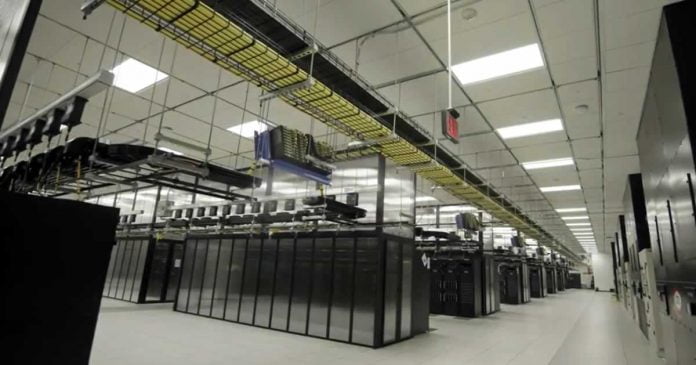Meta has announced the AI Research SuperCluster (RSC), a new supercomputer to create the Metaverse.
RSC AI supercomputer is said to be 20 times faster than Meta’s current V100-based supercomputer. When the RSC is fully expanded in mid-2022, it will be the world’s fastest AI supercomputer. Meta wants to use it to build new and better AI models that can learn from trillions of data points, work with hundreds of different languages, and develop new augmented reality tools — all with the goal of developing Meta’s vision of the Metaverse.
The mainframe should have a theoretical computing power of almost 5 exaflops when the second construction phase is completed by mid-2022. For the time being, it is 2 exaflops, whereby this value refers to the TF32 format intended for artificial intelligence and not to the FP64 (double precision) that is common in HPC supercomputers.
RSC is currently powered by 6,080 Nvidia DGX A100 GPUs. Nodes are connected by NVIDIA Quantum-2’s high-performance InfiniBand networking fabric, which delivers 200 GB/s of bandwidth. As for storage, it has 175 petabytes of Pure Storage FlashArray, 46 petabytes of cache on Penguin Computing Altus systems, and 10 petabytes of Pure Storage FlashBlade. Two of AMD’s 64-core Epyc 7742 (Rome), including 2 TB of RAM and 30 TB of flash, are installed as CPUs per DGX server.
In the first expansion stage, Metas RSC delivers a computing power of 1.897 petaflops with the TF32 format; fully loaded it is 4,992 petaflops. According to Meta, the RSC is already being used in the first phase for training large models for natural language processing (NLP, i.e. computational linguistics) and for research on computer vision.
In the medium term, the system should help to take the step to the Metaverse — without affecting the privacy of the users. Their data should be anonymized and encrypted until shortly before the training session; the AI Research SuperCluster is also decoupled from the regular internet.
The decryption only takes place in memory, and older data records should also be deleted regularly. In this way, Meta wants to ensure that privacy is protected even with physical access to the RSC.
